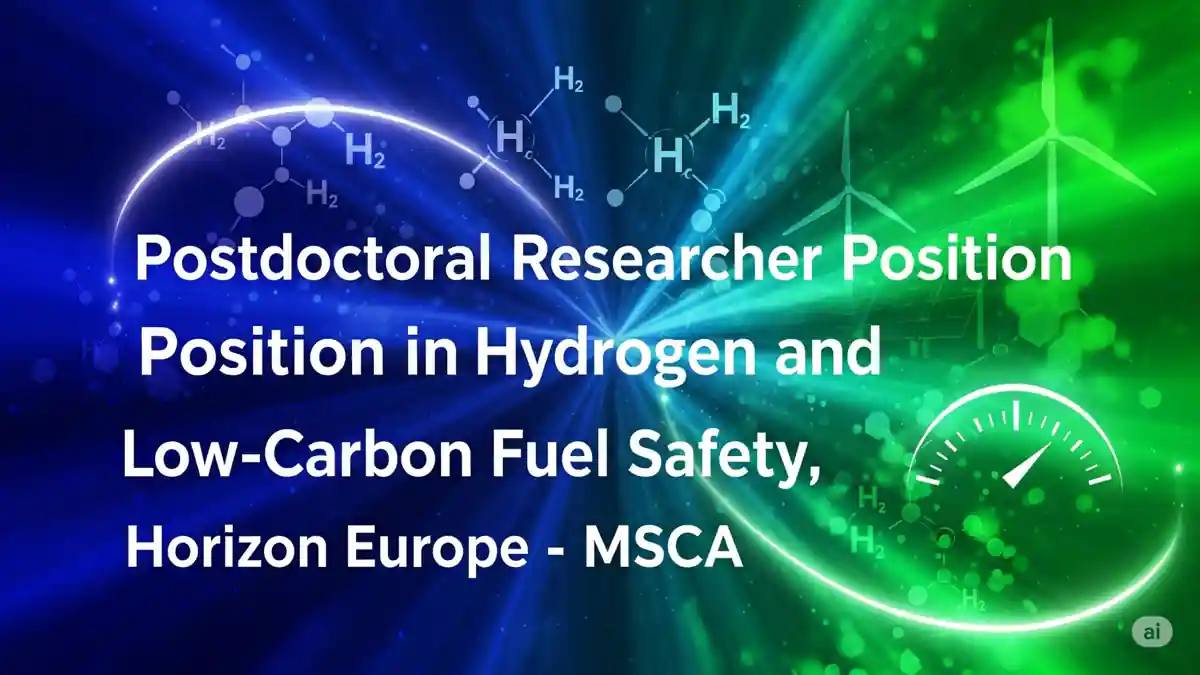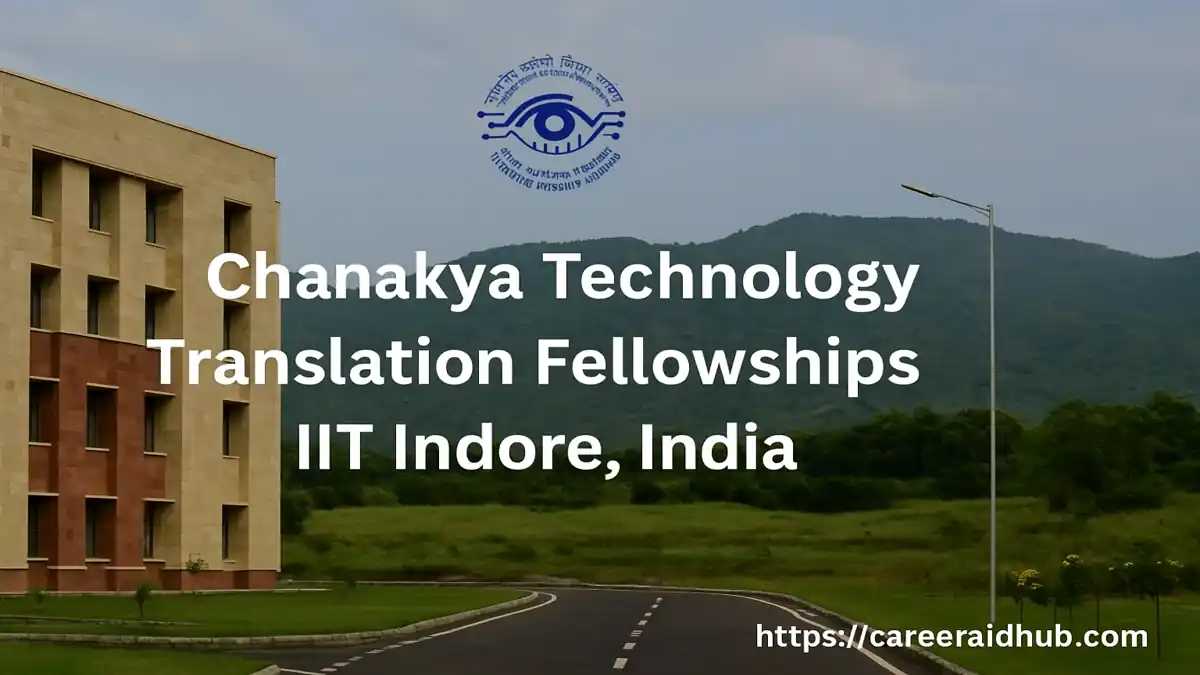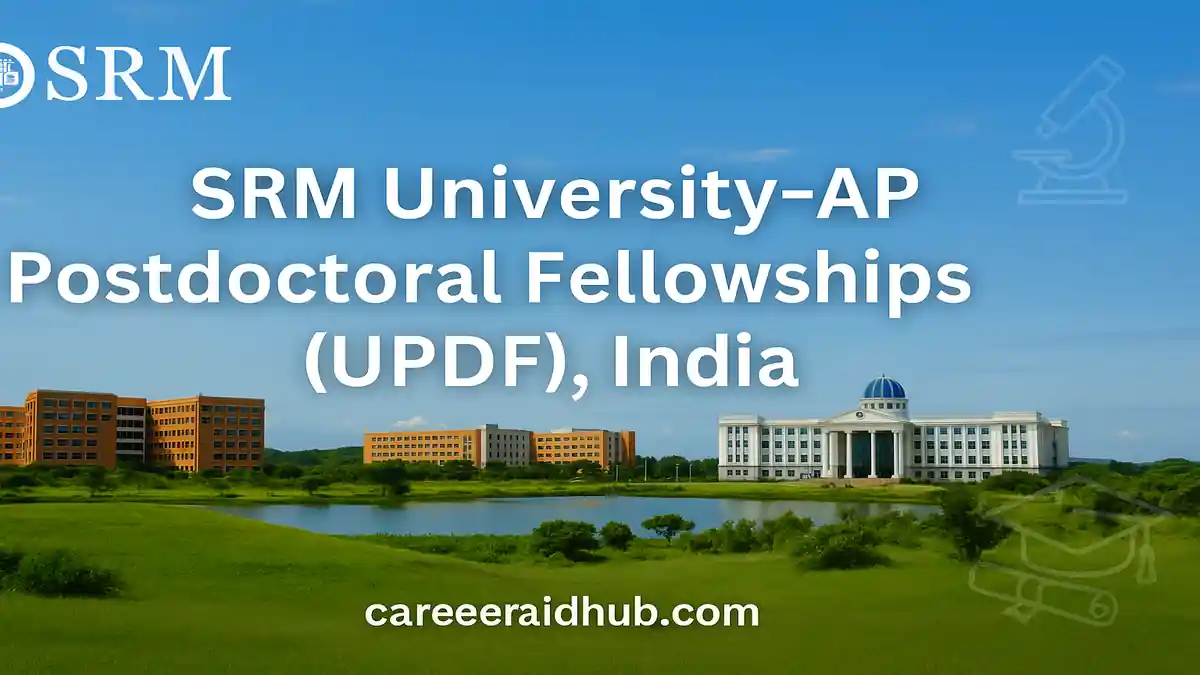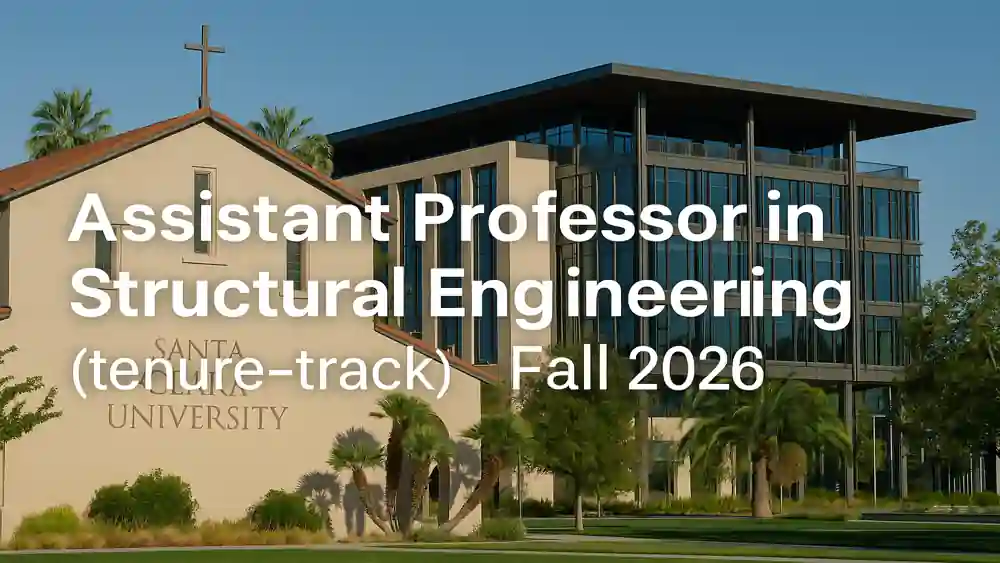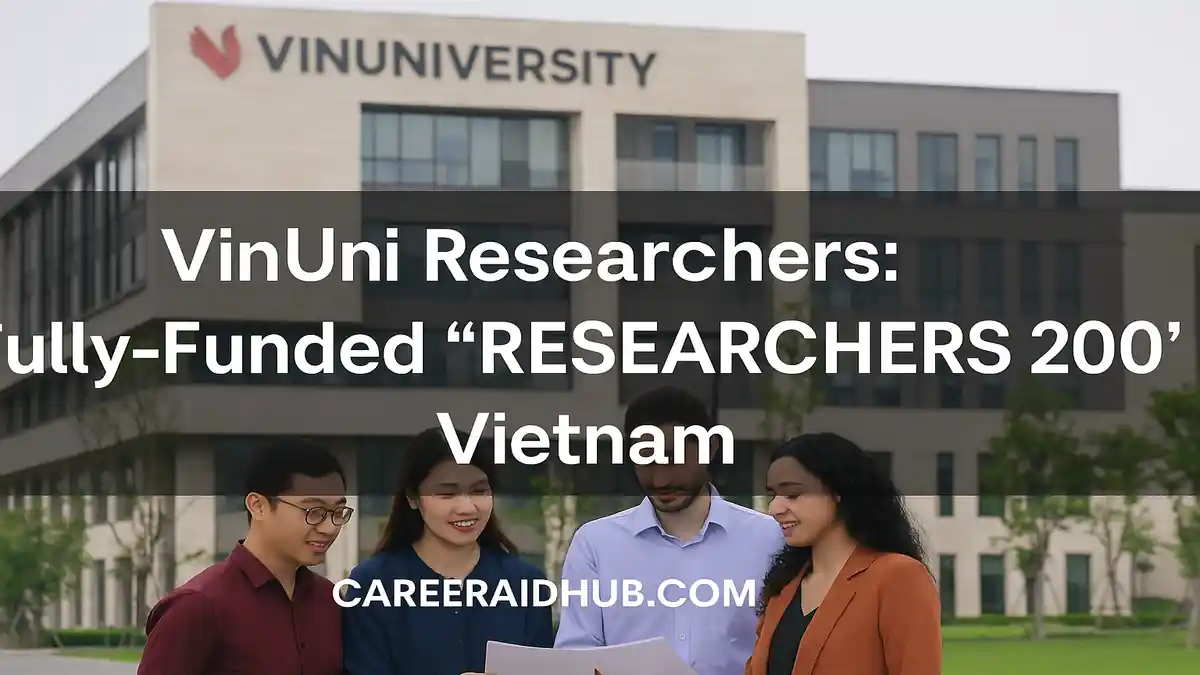VSB–Technical University of Ostrava has announced a Postdoc Researcher (R2) opening in Hydrogen Safety / Zero- and Low-Carbon Fuel Safety at the Centre of Excellence for Safety Research (CESAR). The role sits within the Faculty of Safety Engineering and targets scientists ready to combine experimental work, advanced modeling, and risk analysis to address the safety challenges of alternative energy systems. Full details and the official notice appear on the university’s site.
Build your research career at the Centre of Excellence for Safety Research (CESAR), VSB–Technical University of Ostrava. This postdoctoral role in hydrogen and low-carbon fuel safety offers cutting-edge labs, international collaboration, and funded stability—ideal for researchers who want impact, publications, and real-world relevance across the hydrogen value chain.
Job Overview
Institution: VSB–Technical University of Ostrava (VSB-TUO), Faculty of Safety Engineering, CESAR Centre
Location: Ostrava, Czech Republic
Research Profile: Recognised Researcher (R2)
Contract: Fixed-term, with the possibility of extension; full-time preferred (part-time possible)
Start: 1 October (next available cycle)
Deadline: Early September (exact date confirmed in official materials)
Focus: Hydrogen safety across production, storage, distribution/delivery, and end-use; complementary focus on zero-/near-zero-carbon fuels and e-fuels
Why this role matters
Hydrogen and low-carbon fuels will underpin decarbonization in hard-to-abate sectors. However, safe scaling demands rigorous science: understanding flammability limits, explosion dynamics, material compatibility, and complex systems behavior. This role positions you at that frontier, with access to modern facilities and a network of academic and
industrial partners.
Research Scope & Responsibilities
Core scope
CESAR advances scientific excellence in hydrogen and alternative energy safety through laboratory experimentation, numerical simulation, and data-driven risk methodologies. You will contribute to research that improves industrial practice and informs policy.
Your key tasks
-
- Design and conduct experiments on flammability and explosibility of gases, vapors, liquids, and dusts—including hybrid mixtures relevant to hydrogen technologies and low-carbon fuels.
- Run numerical simulations and help develop new methodologies and tools for prediction and mitigation.
- Perform risk, reliability, and consequence analyses, including external effects from natural events and security threats; contribute to fire safety engineering and chemical stability assessments.
- Apply AI and machine learning to predictive modeling and process optimization, including AI-powered risk assessment frameworks for hydrogen production, distribution, and use.
- Publish and present results in high-ranking venues; mentor doctoral candidates and collaborate with international partners.
Note: CESAR emphasizes end-to-end lifecycle safety, so your work may span electrolyzers, storage (compressed/cryogenic/solid-state), pipelines, refueling, and end-use scenarios.
Candidate Profile & Qualifications
Essential qualifications
-
- PhD in Chemical, Environmental, or Energy Engineering (or closely related field).
- Demonstrated experience in chemical process safety, with a track record in experimental work and advanced modeling.
- Evidence of high-quality publications in relevant journals.
Desirable skills
style="text-align: justify;">
Hands-on experience with experimental setups, diagnostics, and analytical techniques.
Proficiency with CFD and related simulation tools for combustion and dispersion.
Strong communication skills and ability to collaborate in a multicultural, interdisciplinary team.
Flexibility regarding employment mode (full-time preferred; part-time possible where justified).
Benefits & Working Environment
What the centre offers
-
- Modern laboratories and measurement infrastructure, including facilities suitable for combustion, explosion, and safety studies.
- International, cross-sector collaboration—work with universities, institutes, and industry stakeholders.
- Supportive environment for skills development, grant writing, and career planning.
- Competitive salary based on experience, alongside institutional benefits: flexible hours, six weeks of holiday, campus parking, canteen access, university kindergarten, MultiSport program, and additional employee perks.
- English as the working language; strong commitment to diversity and inclusion.
Publication and visibility
You’ll be encouraged to develop a coherent publication pipeline, target top outlets in process safety and energy, and present at international conferences. This visibility strengthens your profile for future independent roles.
How to Apply
Prepare a CV and introductory (cover) letter highlighting scientific fit, methods expertise (experimental and/or modeling), and contribution to consortium goals. Then email your materials to the CESAR Centre coordinator
(contact in the official notice). Selection will weigh academic credentials, research achievements, methodological strengths, team fit, and mentoring potential.
Practical steps
-
- Map your skills to deflagrative/detonative behavior, process safety, and AI-enabled risk modeling.
- In your letter, state how you will translate results into design or operational improvements.
- Offer a draft publication plan and potential collaborations/secondments.
- Line up referees who can speak to experimental rigor, modeling depth, and teamwork.
Why CESAR Matters: Strategic Significance
A Centre of Excellence with clear objectives
CESAR’s mission is to understand, mitigate, and manage safety challenges across the hydrogen lifecycle—from production to end-use—while building an internationally competitive research culture at VSB-TUO. The centre fosters interdisciplinary work that bridges combustion science, materials, systems engineering, and risk analysis.
Impact beyond the lab
Research outputs target data-validated models, risk tools, and evidence-based recommendations for regulators and industry. Consequently, findings can inform codes, standards, and best practices, accelerating safe deployment of hydrogen and low-carbon fuels.
Timeline & Outlook
Current cycle
-
- Anticipated commencement: 1 October
- Application window: early September deadline (see official notice for exact date)
Next cycle (forecast)
-
- Expected announcement: August (next year)
- Expected start: October (next year)
- We
will update soon as the next call is published.
Actionable application tips
-
- Show cross-disciplinary reach: link your combustion work to materials integrity or sensor reliability.
- Quantify past impact: cite model error reductions, validated datasets, or safety metrics you improved.
- Outline data management: propose FAIR practices for experimental and simulation outputs.
- Plan stakeholder engagement: identify industry/agency partners for pilots or workshops.
Feature table
|
Feature
|
Details
|
|
Program Name
|
Postdoctoral Researcher (R2) in Hydrogen Safety / Zero- and Low-Carbon Fuel Safety
|
|
Host Country
|
Czech Republic (Ostrava)
|
|
Funded By
|
Horizon Europe (CESAR – Centre of Excellence for Safety Research)
|
|
Duration
|
Fixed-term with possibility of extension
|
|
Study Mode
|
Full-time preferred; part-time possible
|
|
Eligibility
|
PhD in Chemical/Environmental/Energy Engineering or related; track record in process safety, experimentation, and modeling
|
|
Financial Support
|
Competitive salary based on experience; institutional benefits (flexible hours, six weeks holiday, canteen, parking, kindergarten, MultiSport, and more)
|
|
Fields of Study
|
Hydrogen safety, low/near-zero-carbon fuels, process safety, AI-based risk modeling
|
|
Deadline
|
7 Sep 2025 – 22:00 (UTC)
|
|
Official Website
|
Click here
|
Conclusion
This postdoctoral position at VSB-TUO’s CESAR combines rigorous experimentation, advanced simulation, and practical risk engineering to answer urgent questions about hydrogen and low-carbon fuel safety. With modern infrastructure, international partners, and clear pathways to publication and impact, it offers a compelling platform for early-career researchers ready to lead. For authoritative details, consult the official PDF announcement hosted by VSB-TUO.
Frequently Asked Questions (FAQs)
What is the CESAR Postdoctoral Researcher in Hydrogen Safety at VSB-TUO? It is a funded R2 postdoc focused on hydrogen and low-carbon fuel safety, combining experiments, CFD simulations, and quantitative risk analysis within the CESAR Centre.
Who can apply for the VSB-TUO hydrogen safety postdoc? Applicants hold a PhD in chemical, energy, or related engineering; moreover, they show process-safety research experience, publications, and readiness for international collaboration.
What are the main responsibilities in this hydrogen safety postdoc? You design flammability and explosion experiments, simulate dispersion/combustion, perform consequence and reliability analyses, publish results, mentor students, and collaborate with academic and industry partners.
Does the centre support international researchers and English as the working language? Yes. CESAR operates in English; furthermore, the university welcomes international candidates and provides standard onboarding support for relocation and workplace integration.
What benefits does VSB-TUO offer postdoctoral researchers? Benefits typically include competitive salary, flexible hours, extended holidays, campus amenities, professional development programs, and access to modern laboratories and measurement infrastructure.
How long is the CESAR postdoctoral contract? The contract starts fixed-term and, after positive evaluation, can extend; thus, the centre expects full-time engagement, with part-time options considered for specific cases.
When are the application deadline and start date for this postdoc? Applications usually close in early September; consequently, selected researchers typically start in October. However, you must follow the official notice for exact dates.
How do I apply to the VSB-TUO hydrogen safety postdoc? Prepare a tailored CV and cover letter, then email the listed coordinator; also include transcripts, publication list, and referees if the announcement requests them.
Why is this hydrogen safety postdoc strong for career growth? It offers interdisciplinary projects, international partnerships, high-impact publications, and industry-relevant research; therefore, it strengthens both academic pathways and applied engineering roles.
Premium Mentorship for a Stronger Application
- Premium Mentorship: personalised 1:1 guidance for this and similar opportunities
- In-depth review of your CV, academic profile, and key statements
- Aligned with international selection criteria so your profile matches what panels expect
- Stronger, more compelling narrative for highly competitive calls
- Step-by-step support from opportunity mapping to final submission (fee-based)
Subscribe Premium Mentorship

